Document Author
Year Published
- 2015 (6) Apply 2015 filter
- 2012 (4) Apply 2012 filter
- 2014 (3) Apply 2014 filter
- 2017 (3) Apply 2017 filter
- 2000 (2) Apply 2000 filter
- 2002 (2) Apply 2002 filter
- 2004 (2) Apply 2004 filter
- 2005 (2) Apply 2005 filter
- 2013 (2) Apply 2013 filter
- 2016 (2) Apply 2016 filter
- 2007 (1) Apply 2007 filter
- 2008 (1) Apply 2008 filter
- 2009 (1) Apply 2009 filter
- 2011 (1) Apply 2011 filter
- 2018 (1) Apply 2018 filter
- 2020 (1) Apply 2020 filter
Topic
- (-) Remove Plain Language & LEP filter Plain Language & LEP
- Plain Language (23) Apply Plain Language filter
- Forms (11) Apply Forms filter
- LEP and Access (11) Apply LEP and Access filter
- 100% Access to Justice (10) Apply 100% Access to Justice filter
- Forms (8) Apply Forms filter
- Research (8) Apply Research filter
- Reports, Evaluations, Best Practices, Surveys (7) Apply Reports, Evaluations, Best Practices, Surveys filter
- Self-Help Centers (6) Apply Self-Help Centers filter
- Strategic Planning (6) Apply Strategic Planning filter
- Simplification (5) Apply Simplification filter
- Technology (5) Apply Technology filter
- Trial Court Self-Help (5) Apply Trial Court Self-Help filter
- Best Practices for Self-Help Centers (4) Apply Best Practices for Self-Help Centers filter
- Ethics Education (4) Apply Ethics Education filter
- State Language Access Plans (4) Apply State Language Access Plans filter
- Articles & SRLN Briefs (3) Apply Articles & SRLN Briefs filter
- Best Practices (3) Apply Best Practices filter
- Libraries (3) Apply Libraries filter
- Presentations (3) Apply Presentations filter
- ATJ Commissions (2) Apply ATJ Commissions filter
- Conferences & Summits (2) Apply Conferences & Summits filter
- Judicial Ethics (2) Apply Judicial Ethics filter
- LEP Reports (2) Apply LEP Reports filter
- Map Gallery (2) Apply Map Gallery filter
- Reports (2) Apply Reports filter
- State-by-State (2) Apply State-by-State filter
- Triage (2) Apply Triage filter
- Unbundling (2) Apply Unbundling filter
- Automated Forms & E-Filing (1) Apply Automated Forms & E-Filing filter
- Clerk, Self-Help Center Staff, and Librarian Ethics (1) Apply Clerk, Self-Help Center Staff, and Librarian Ethics filter
- Consumer Adoption (1) Apply Consumer Adoption filter
- Courts (1) Apply Courts filter
- Evaluation (1) Apply Evaluation filter
- Funding (1) Apply Funding filter
- Human Centered Design (1) Apply Human Centered Design filter
- Justice Tech Entrepreneurs (1) Apply Justice Tech Entrepreneurs filter
- Legal Aid (1) Apply Legal Aid filter
- Trainer of the Trainer Materials / Curricula (1) Apply Trainer of the Trainer Materials / Curricula filter
- Webinars (1) Apply Webinars filter
- Working Groups (1) Apply Working Groups filter
State
- California (4) Apply California filter
- New York (3) Apply New York filter
- Washington (2) Apply Washington filter
- Alaska (1) Apply Alaska filter
- Connecticut (1) Apply Connecticut filter
- Florida (1) Apply Florida filter
- Georgia (1) Apply Georgia filter
- Hawaii (1) Apply Hawaii filter
- Illinois (1) Apply Illinois filter
- Minnesota (1) Apply Minnesota filter
- North Carolina (1) Apply North Carolina filter
- Rhode Island (1) Apply Rhode Island filter
- South Dakota (1) Apply South Dakota filter
- Texas (1) Apply Texas filter
Region
- (-) Remove United States filter United States
Tags
Post date
Search results
Research: Principles of Readability (DuBay 2004)
This research gives a brief introduction to the literacy studies in the U.S. and the research on readability and the readability formulas. It is available at http://www.impact-information.com/impactinfo/readability02.pdf Plain Language United States ...
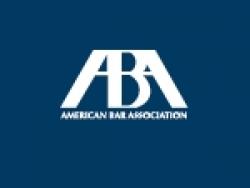
Report: Standards for Language Access in Court (ABA 2012)
A project of the Standing Committee on Legal Aid and Indigent Defendants, the Standards for Language Access in the Courts (2012) (available here) offers standards and extensive commentary to provide guidance to courts in designing, implementing, and enfo ...
Plan: Hawaii State Judiciary Language Access Plan (Hawaii 2014)
This is the Hawaii State Judiciary Language Access Plan, which can be found at http://www.courts.state.hi.us/docs/services/LEP.pdf. State Language Access Plans Hawaii United States Hawaii Language Access Plan 2013-2014.pdf Hawaii State Judiciary 2014 ...
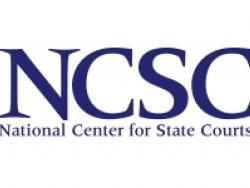
Report: Guide to the Translation of Legal Materials (NCSC 2011)
Prepared by the Consortium for Language Access in the Courts, Professional Issues Committee of the National Center for State Courts, this document is designed to help courts better understand the many considerations that go into document translation. The ...
Resource: Language Access Planning and Technical Assistance Tool for Courts (DOJ 2014)
This language access planning and technical assistance tool for courts was created by the Department of Justice Civil Rights Division, Federal Coordination and Compliance Section (DOJ), to assist courts and court systems as they develop comprehensive lang ...

SRLN COVID-19 Best Practice Tip: Produce Plain Language and Accessible Court Administrative Orders (News 2020)
As COVID-19 continues to impact court operations, courts must produce easy to understand and accessible translations of court administrative orders in order to ensure court processes remain inclusive of all court users. SRLs, the predominant user group in ...
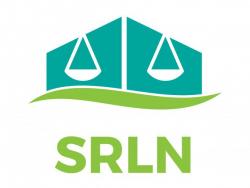
SRLN Brief: LEP Language Access Resources (SRLN 2015)
Without proper language assistance, Limited English Proficient (LEP) court users are excluded from meaningful participation in the courts. Federal laws particularly applicable to language access include Title VI of the Civil Rights Act of 1964, and the Ti ...
Rhode Island Judiciary Provides Equal Access for Individuals with Limited English Proficiency (Rhode Island 2016)
In April 2016, the Rhode Island Justice Department announced the closure of its case concerning the provision of language assistance to individuals with limited English proficiency (LEP) in the state court system following the successful implementation of ...
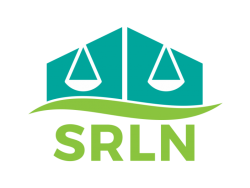
SRLN Brief: Plain Language Resources for 100% Access (SRLN 2015)
What is plain language? As described by the federal government on plainlanguage.gov, plain language is communication your audience can understand the first time they read or hear it. Plain language is recognized as an essential best practice in all access ...
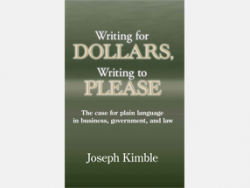
Book: Writing for Dollars, Writing to Please The Case for Plain Language in Business, Government, and Law (Kimble 2012)
This book collects the empirical evidence supporting the value of plain language in business, government, and law. Professor Kimble summarizes 50 studies (no less) that show using plain language can save organizations and agencies a significant amount of ...